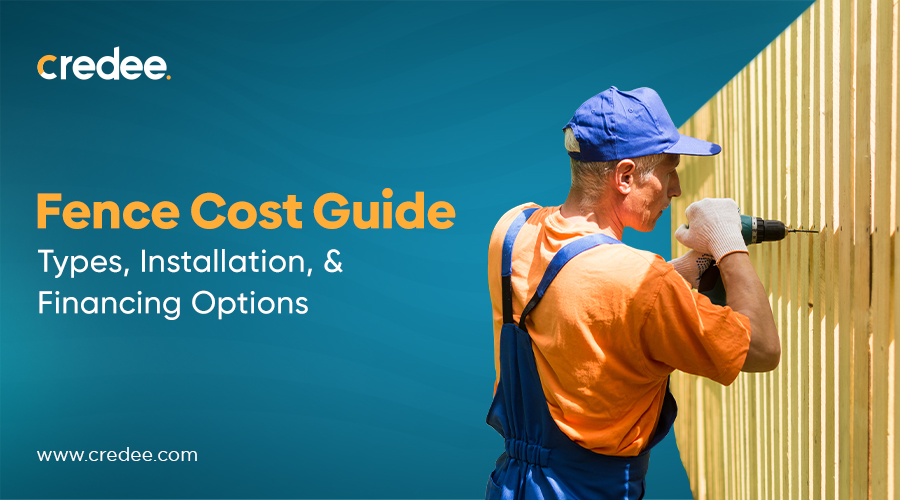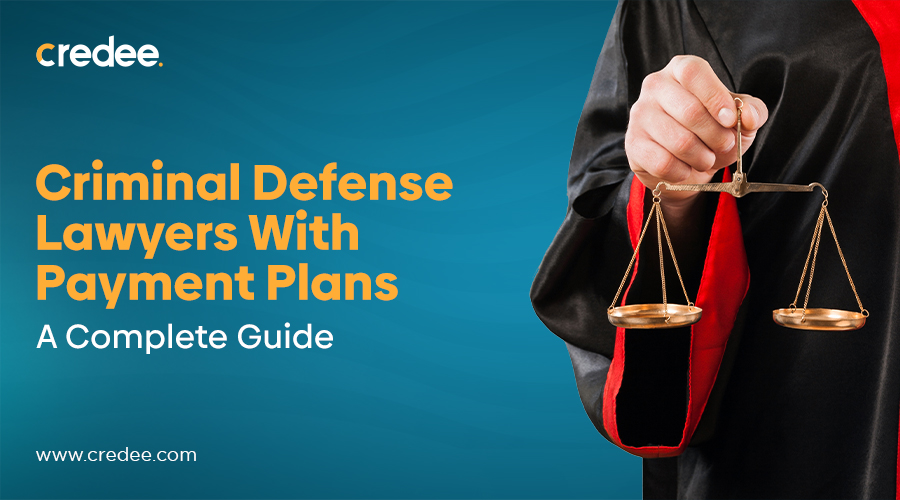
The harsh weather conditions throughout the different seasons can surely mess up your house’s roofing system. Water damage, cracked shingles, mold growth, and other damages can reduce the lifespan of your roof, hence, most roofs usually need regular repairs and require replacement within 10–20 years.
When you own a home and need to address a roof replacement or repairs, a crucial choice is figuring out how to pay for a new roof or handle repair costs associated with it. Dealing with finances tends to be a hurdle in this situation. Typically, repairing a roof could set you back $5000 to $12000 or even more depending on the type of roof. However, roofing financing options can help ease the financial burden to a great extent.
In this blog, we’ll talk about financing for roof replacement and available options, including roof payment plans and government grants that can help.
How Much Does Roof Repair and Replacement Cost for Different Types of Roofing?
| Type of Roof | Average Roof Repair Cost (per sq. ft.) | Average Roof Replacement Cost (per 1500-2500 sq. ft.) |
|---|---|---|
| Asphalt Shingles | $975–$1,500 | $6,000–$10,000+ |
| Metal Roofing | $1,700–$3,190 | $10,245–$41,640 |
| Clay/Ceramic Tile Roofing | $1,000–$1,525 | $10,665–$20,900 |
| Wooden Shingles | $750–$1,500 | $10,230–$15,500 |
| Slate roofing | $1,800–$3,248 | $30,925–$54,020 |
| Concrete Tiles | $1,500–$3,000 | $10,500–$47,500 |
| Composite Roofing | $450–$2,500 | $15,000–$25,000 |
Other Factors that Affect the Roof Cost
| Components | Average Cost |
|---|---|
| Roof Size (per 1000 sq. ft.) | $4,500–$11,000 |
| Labor Costs | $30–$100 per hour |
| Material Expenses | $3,000–$7,000+ |
| Permits Fees | $100–$1,000 (Varies) |
| Roof Inspection Charges | Varies by State |
| Seasonal Repair Costs | Varies by Location |
Can Insurance Cover the Roof Replacement Cost?
Insurance claims are the go-to method for many to pay for roof repairs. If you have home insurance, then it may help cover a portion of repair costs, depending on your plan. The monthly insurance deductible is typically 1%–5% of the value of your house. So, if your house is valued at, say $100,000, a good insurance plan may help cover the full cost of roof repairs. However, when it comes to roof replacement, insurance may or may not cover the entire cost, depending on whether the roof damage meets the policy criteria.
The process can be rather arduous and complicated, and sometimes the coverage may not be enough to cover the full cost. Additionally, you may need to jump through more than a few hoops to claim the insurance benefits. This often delays the process, sometimes only leading to your claim being denied. So, when you need swift roof repair services, you may want to explore other financing options to pay for a new roof or repair your existing one.
Roofing Financing Options for Homeowners: 7 Ways to Pay for Roof Repair and Replacement
1. Credit Card:
Paying all in cash may not be feasible for most. Hence, many people use credit cards to instantly pay for minor roofing repairs. However, if your roof has significant damage, then you may be wondering, ‘Can I put roof repair on my credit card?’.
Well, it is possible if your credit card company allows you to pay it off throughout the year with installments and charges low interest. However, if you have a high-interest card, it can cost you way beyond what you’d usually pay for roof repair in cash.
Additionally, most roofers pass on the transaction fees to customers, so you will need to bear the extra costs, which can be exorbitant with each big transaction. Moreover, over-exerting your credit utilization may negatively impact your credit, so it may be better to find a reasonable financing option. This method can be feasible for repairs under $2,000–$10,000 or as per your credit card limits.
2. Personal Loan:
This is the traditional financing method that most people generally go for. You can apply for a personal loan from any local bank, and if your credit score is good, it may be easier to get approved. Typically, you need a 640 or better credit score.
When choosing this route, you need to carefully weigh a few factors, including interest rates charged by the bank, monthly installments, repayment schedule’s flexibility, and repayment terms of different lenders. If your credit scores are high, you may be able to get lower interest rates and more favorable terms.
Remember, a credit check is a mandatory step for financing through financial institutions, so if your scores aren’t favorable, this option may cost you more than the actual repair cost. This method can help finance roof repairs worth $10,000 up to $50,000 and typically charges interest rates from 4% to 36% or more.
Discover Roofing Financing Options That Work for You.
3. Flexible Roofing Payment Plans:
Nowadays, many roof companies also offer roof payment plans using platforms like Credee. This “No Credit Check” financing option breaks down the barriers that homeowners may face in obtaining traditional financing. Since no credit check is needed, this method is ideal for those with bad credit or those who want to avoid hard credit checks altogether.
For choosing this financing option, you may consult with your roofer upfront or look for roofing companies with payment plans near you. Credee offers instant approval to 97% of applicants—no collateral is required. Additionally, you can get a custom roofing financing plan that perfectly fits your budget and make easy monthly payments. This method can help you cover roof repair costs ranging anywhere from $2,000 up to $100k.
4. Home Renovation Loans:
You can also take home renovation loans to repair and upgrade your roofing as well as other home improvements. There are a few ways to do it; for instance, you can fund the renovations by refinancing your mortgage. You can use the cash payout to upgrade your home. Or you can opt for government-backed FHA loans.
Here are some home renovation loan options you may consider:
- Cashout Refinancing
- Fannie Mae HomeStyle
- Freddie Mac CHOICERenovation Loan
- FHA 203(k) Loan
- Personal Loan
These loans can help get you financing worth 75% of the estimated property value. You need a minimum credit score of 580 for FHA and 620 to qualify for the other aforementioned financing options.
5. Financing from Third-Party Private Lenders:
Some roof companies directly work with lenders who provide financing specifically for home improvements. Whether it be a personal loan, long-term payment plan arrangement, or unsecured line of credit for financing a roof replacement, there are various options to choose from.
6. Home Equity Loan (HELOC):
You can also consider getting a HELOC using your home equity as collateral. This method can help you get financing based on how much equity you own.
To break it down, let’s say your home value is $500,000 and you have already paid off over 60%, i.e., $300,000, of the mortgage amount. That means you can avail a line of credit worth 85% of the $300,000 equity you own.
It is a long-term financial obligation, i.e., 10 or more years where you make monthly payments to repay the loan with interest. However, as your property is collateral, there is a risk of foreclosure if you miss or fail to pay the installments. On average, this method can help you cover home and roof repair/replacement costs between $12,000–$400,000.
7. Roofing Grants:
For those who have no money to pay for roof repairs but desperately need roofing services, government grants can help. These grants are designed to provide assistance to low-income households, veterans, disabled individuals, and elderly homeowners who truly need it. If you meet the specified financial criteria, this can be your way to pay for roof repairs without money. To qualify for these grants, your monthly income, age, debt & assets, homeownership status, and a few other factors are assessed.
Comparing Different Methods to Pay for a Roof
| Credit Cards | Min. Credit Score: 620 Financing Term: Varies (up to 12 months) Financing Amount: $10,000 or more depending on the credit limit |
| Personal Loan | Min. Credit Score: 620 Financing Term: 6 to 24+ months Financing Amount: $10,000 to $50,000+ |
| Credee Payment Plans | Min. Credit Score: No Credit Check Financing Term: 3 to 48+ months Financing Amount: $2,000 to $100,000 |
| Home Renovation Loan | Min. Credit Score: 580–620 Financing Term: 10+ Years Financing Amount: 75% of property value |
| HELOC (Home Equity Loan) | Min. Credit Score: 620–780+ Financing Term: 3–10 Years Financing Amount: 85% of home equity |
| Third-Party Private Lenders | Min. Credit Score: 600 or lower (interest can be high) Financing Term: 2–7 Years (for short term) and 15+ Years (for long-term loan) Financing Amount: Upto $100,000 |
| Roofing Grants | Min. Credit Score: Varies as per the State (500–690 is the typical range) Financing Term: Upto 20 Years Financing Amount: $10k–$40k |
Grant Options for Roofing Repair: Loans & Government Grants for Housing Restoration & Improvements
If you are in need of home repair assistance, you may explore the following grant options:
1. Weatherization Assistance Program (WAP): This government initiative, backed by the U.S. Department of Energy (DOE), helps low-income households. This program is designed to enhance home energy efficiency with roofing, attic, wall insulation, and other necessary home upgrades.
2. The Housing Preservation Grant (HPG): USDA Rural Development sponsors this grant and funds non-profit organizations, state and local authorities, and federally recognized tribes to help provide housing repairs for very low-income families who reside in rural areas. You can reach out to an affiliated organization in your area for assistance.
3. USDA Rural Repair and Rehabilitation Grants: The USDA Rural Development program also offers other housing repair loans and grants for:
- Single-Family Housing Repair—also known as the Section 504 Home Repair program—has a maximum grant amount of $10,000 and a maximum loan amount of up to $40,000.
- USDA Rural Development Grant for Elderly—offers a grant amount of $7,500–$10,000, and the loan is available for $20,000–$40,000 (varies per state).
4. Home Repair Grants for Veterans: U.S. military veterans, including veterans with a disability, can claim/qualify for specified grants and loans backed by the government, including:
- Cashout refinancing loan backed by Veterans Affairs (VA)
- Specially Adapted Housing Grant
- Temporary Residence Grant
- Home Improvement And Structural Alterations Grant
- Special Home Adaptation Grant
To prove qualification, veterans require a Certification of Eligibility (COE) and need to fulfill additional requirements as specified.
5. HUD Community Development Block Grants (CDBG): Administered by the Department of Housing and Urban Development (HUD), this annual grant supports local community development by addressing infrastructure needs, including housing rehabilitation and homeowner assistance. This funding is not directly available to non-profit organizations but they can apply for this grant from the local government to offer assistance to homeowners in their community. This grant focuses on low- to moderate-income areas for development initiatives and public services.
6. State and Local Housing & Roof Repair Programs: There are various grants and programs for roof and home repairs available in every state, and avenues to find them through local non-profit organizations.
For instance, the Section 504 Home Repair program in California allows low-income families and elderly citizens to get the required home repairs and remove any health hazards. This grant can cover repairs from $10k–$40k maximum. Each state has its own housing assistance and repair programs, guidelines, and a set of prerequisites that you need to follow, so make sure to go through them carefully before applying.
How to Apply for Government Grants for Roof Replacement or Repair?
You can learn about the grants, eligibility, and how to apply by visiting the website of the concerned authorities in your area and exploring the available grant and loan options. You can also reach out to local non-profit organizations for assistance.
While government grants can be immensely helpful, they may fall short of covering the full cost of repairs, so the homeowner would be liable to cover the rest. In this case, you may want to look out for other financing options to manage the remaining expenses.
Choose Flexible Roof Financing Options with Credee
When looking for roofing companies with payment plans near you, prioritize those offering transparent terms and no hidden fees. With several roofing financing options available, you can find the perfect balance between quality and affordability at Credee.
Credee is a convenient financing platform that offers instant approval, requires no credit checks, and offers tailored plans that work for homeowners. Additionally, it streamlines the process for roofers and customers with its automated system, from sending payment reminders to collections and everything in between. All you need to do is consult with your roofing services provider, and they can help set up a plan for you.
If government grants, insurance coverage, or traditional financing are not viable, you can easily apply for flexible roofing financing with Credee by consulting with your roofer. This option is ideal when traditional financing options fail to cater to your specific roof financing needs.
Wrapping Up
Financing a roof replacement doesn’t have to be overwhelming. Whether you're dealing with small repairs or planning a full roof replacement, knowing your options—ranging from flexible roof payment plans to government grants—can ease the financial strain. By exploring roofing payment plans at a reputable roof financing company, you can take the stress out of the process. So, be sure to assess all your options before making a decision.
The key is to choose a solution tailored to your financial goals. For instance, options like Credee stand out as the most convenient method with its no credit check requirements, easy process, 97% approval rate, and flexibility to customize roof payment plans to help manage the cost in easy monthly payments.
Learn About Credee’s Flexible Plans And Discover The Best Roof Financing Solutions!
Schedule A Demo NowRoofing Repair Financing FAQs
1. What Credit Score Is Needed for Roof Financing?
620–640 is a good credit score to qualify for roof financing.
2. Can I Get Roof Financing with Bad Credit?
If your credit score is low/bad, you can qualify for Credee’s “no-credit-check” financing. For this, you need to consult with your roofer or find roofing companies with payment plans near you who offer financing with Credee.
3. Are There Any Government Roof Repair Grant Options?
Yes. There are different home repair grant options for low-income households, elderly homeowners, and veterans. Depending on your eligibility, you may qualify for:
- Weatherization Assistance Program
- Housing Preservation Grant (HPG)
- Local and State Housing Repair Grants
4. What Is the Best Roof Financing Option Without Affecting Credit Score?
Credee’s flexible roof payment plans are the best option when you want to get roof financing without going through a hard credit check. This no-credit-check option is ideal for individuals with bad credit and those without home insurance.
5. Why Choosing Credee Is the Best Option for Roof Financing?
Credee financing is the best option for several reasons, including:
- No credit checks are needed to qualify.
- You pay low monthly payments.
- The approval process is quick, with no long waiting time.
- 97% of applicants get instant approval.
- No collateral is required.
If you want more information on Credee payment plans, feel free to reach out to our team.



